Underground Strength Interview w/ Coach Burgess, co-author of Pigskin Prep
Age Appropriate Performance Training for Youth Football
First things first: who are you and what do you do?
Ha, thanks Zach. My name is Ryan Burgess; I’m a physical preparation coach at Fitness Quest 10 out in San Diego, CA, where I also direct all of our football programs. I’ve coached and trained athletes and general fitness clients from almost every walk of life you can imagine, but my primary focus has been on American football players and, in the last few years, some amateur strength and combat athletes. Football is my passion though, and developing football players from the youth level all the way up to the All-Pro’s is what really drives me.
Very cool. How did you become a Strength Coach at one of the premiere Fitness Facilities in the country?
It’s a very long and winding tale, so for simplicity’s sake here’s the short version. I grew up an average athlete that always wanted more. I trained my ass off through high school to be a better football player, and then carried that passion on through college where I was a walk-on offensive lineman at Colorado State University. I had known since I was 16 that I wanted to be a strength coach when I grew up, but I was a little burned out on the college scene by the time I graduated.
Instead of going the traditional Graduate Assistant-Assistant Strength Coach-Head Strength Coach route, I looked for a way to work with athletes in the private sector. I happened to meet a guy who had built a pretty legit, albeit small, gym that looked like it was poised for growth and convinced him to take me on as an intern.
7 years later, the gym has since tripled in size, our athletic programs are far beyond what they used to be, and I’ve had the opportunity to work with athletes and people from so many diverse backgrounds it’s accelerated my growth as a coach and as a person.
That’s quite the journey man. I also understand that you’ve embarked on a little bit of a second athletic career?
Yeah, after spending my first few years post-football focusing on losing weight and toiling away in fitness misery, I came to the conclusion that I just have too much fun lifting weights. I’m naturally a bigger guy, and had limited myself to lifting twice a week, running, and swimming just to maintain a weight in the 250’s. While I was definitely “fit” by any classical definition, I wasn’t happy. So I said screw it.
It was one of those pivotal “be who you are” life decisions. I started lifting again and pursing the things that I wanted to do, not things I “should” be doing. I happened to have some friends who compete in Strongman, so in 2010 I did my first contest and was hooked.
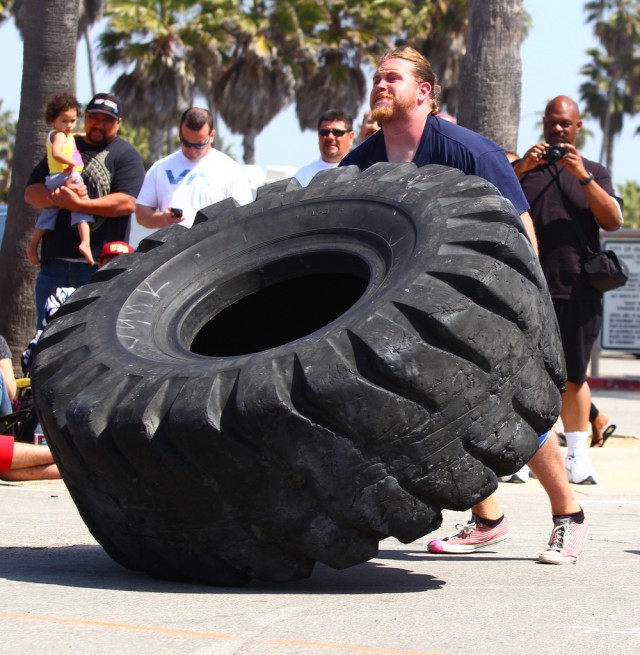
I’ll be the first to say that I’m a coach first and athlete second. Other than being big, I don’t have great genetics, so I have to fight for everything I want athletically. I’ve done a few powerlifting meets and a bunch of strongman competitions, and while my numbers and results aren’t anything special, I love trying to outdo myself every time I step into the competitive arena.
It allows me to blow off steam, gives my training purpose, and I also get a great perspective to relate with my athletes on a deeper level. It can be a tough juggling act, but the pros still far outweigh the cons and I’ll keep doing it until I can’t.
You mentioned football being your primary focus. Give the readers a little more insight into your coaching/training philosophy and who you’ve worked with.
As far as coaching philosophy, everything I do is founded in a Growth Mindset. I love to learn, and I’m a “tinkerer” by nature. The things I’ve done over the last few years are very different than what I did when I first started, and I hope to always keep that open of a mind.
Currently I’m a firm believer in looking at things from a long-term developmental standpoint. When working with youth athletes, I take to heart the fact that we’re creating the foundation on how they’ll move for the rest of their lives.
As they get older, the focus will shift more towards things that will have a higher correspondence to football and their position within that sport. Once the foundation has been set, the time we get in the gym or on the track/field all has to lead towards the ultimate goal of becoming the best football player they can be, not just the best athlete.
With the NFL Combine athletes and the Pro’s themselves, things become a little more unique. Training for the combine is a beast unto itself that requires a ton of specific focus and attention. With Vets, it’s more fine-tuning than anything else.
I also want to point out the importance of attitude. Advancing to the next level in any sport is largely predicated on mindset. Yes, guys at the highest level are typically genetic freaks. But they’re also mentally strong and incredibly focused on their goals. No matter what the public perception of it is, I will never back down from the belief that football is a warrior’s game.
If you can’t hack it, find something else to do… nobody has a birthright to be an All-Star, it has to be earned. I’m not tying to be a hard ass, either, because I’m one of the guys who couldn’t get the job done! That’s an incredibly important life lesson to learn though, and sports are one of the few arenas that can still teach it.
No matter how many people try to convince you otherwise, developing athletes isn’t a math problem. It’s not taking “X” athlete, inserting him into “Y” program, and getting “Z” result.
Football is an incredibly tough and demanding game, and the higher up that mountain you climb, the harder the wind blows. I feel the biggest impact a physical preparation coach, or any coach for that matter, can have on their athletes is getting them to believe in themselves, teaching them how to laser in on their goals, leading them on the relentless pursuit of those objectives, and helping them understand failure while refusing to accept it.
I LOVE what you say regarding the mental side of the training. What are some of the facts and fallacies you see when it comes to training for football?
Where should I start? For as great as the game is, I feel that football can be incredibly dogmatic in how it’s approached, especially with training. Despite the advances we’ve seen in how the game is played, athletes still get trained with a very old way of thinking.
First and foremost, you can’t train athletes at every level the same. As much as this should be common sense, you can’t take a 7th grader and have him doing the same thing you saw a Pro Bowler doing on YouTube.
It goes back to understanding that the younger guys are still developing their general physical prep level. Building a base level of strength, refining gross-motor skill, and basically just learning how to run, jump, and display their strength effectively is of the utmost importance.
As those players get older, and especially as they move on to the collegiate level, things need to take more of a sport specific focus. Let me clarify that statement, though, by saying that we’re not trying to mimic football in the gym. When they get to this stage, practice time becomes much more important, so taking that stress plus the competitive stress from games has to be taken into consideration when building the training program.
It’s also important to look for and utilize exercises and drills that have a high degree of transfer to the specific demands of American football. It still blows my mind that the 300 yard shuttle is the standard conditioning test for so many colleges and teams, because that predominate energy system in that test has absolutely nothing to do with football. People also need to take position differences into account.
While I’m all for the team training together and in small groups, you still have to program with individual demands in mind. What a Quarterback, Right Tackle, and Safety all experience over the course of a game and season differ greatly from one another, so you better train accordingly if you want optimal performance.
It sounds like you have a passion for training younger athletes just as much as the All-Stars… what are some of the biggest challenges you see with that population?
You definitely got that right Zach! While I love fixing the current generation, I’m in this for the long haul. What excites me is the thought of better preparing the kids that will be in college and the NFL in the next 10, 15, 20 years.
Throughout my career I’ve noticed a glaring flaw in a lot of the 8th and 9th graders that came our way: a dangerously low level of preparedness for what was being asked of them in their sports at that level.
Even some of the more advanced college and professional athletes would initially come in with a surprisingly low level of strength and coordination, which to me meant they weren’t operating at the highest level they could be. So my message to all youth football coaches and parents is be patient.
Learn and embrace the process.
Instead of just thinking about what will help your 10 year old right now, think long term.
Most of the kids I grew up with that were All-Stars at that age burned out before they even made it to college.
Focus on a diverse pool of movements.
Encourage them to participate in a few different sports.
Let them go outside and PLAY!!! At that age, things like rhythm, coordination, and synchronization are incredibly important because it will make them more efficient movers down the road.
You recently released a product aimed towards helping youth football athletes. Can you tell us more about that?
Hell yeah! If I’ve learned one thing about the people involved in youth sports, it’s that they care. Their heart’s in the right place, which is an incredibly valuable thing. Unfortunately, many of those same people have no clue what to do when it comes to the proper, sequential development of a youth athlete. After helping a few teams and a lot of families out over the last few years, I wanted to create a way to help that population on a bigger level.
I teamed up with a colleague of mine, Coach Jeff King, who is absolutely brilliant when it comes to the long term athletic development of children. By pooling our resources, we were able to come up with a comprehensive program specifically designed for youth football players under the age of 14 so they can develop speed, strength, power, and overall movement in a safe and effective manner.
Not only will this get them performing better now, it will keep them healthier over the long haul and help them reach their athletic potential.
We also went much deeper then just writing a training program. Because we know a lot of coaches and parents are starting with very little understanding on the subject, we covered everything they’d need to know: in-depth descriptions on all of the components of a training session, the annual plan, building a support staff, equipment suggestions, and a ton more.
We also backed the entire thing up with an exercise video database, so they’ll have access to over 100 videos where we demonstrate the movements, progressions, regressions, effective cues, and what to look for.
Ryan, you're the man and BIG thanks for your time as well as commitment to young athletes. Where can people go for more information on you and your program?
For the Youth Pigskin Prep E Book click HERE
I’m here to help, so if anybody has any questions and wants to contact me directly they can drop a comment on your blog and I will answer any questions they have
Thanks again for your time Zach, and I hope this helps the Underground Strength Crew!

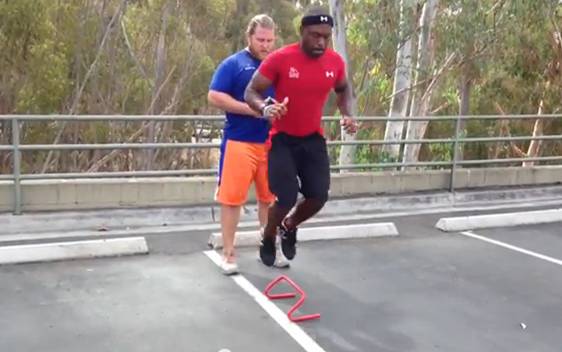
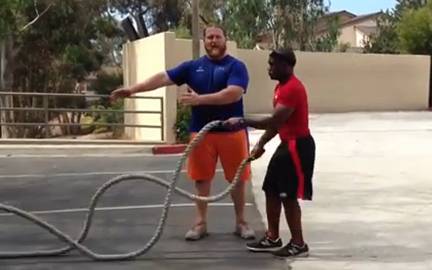
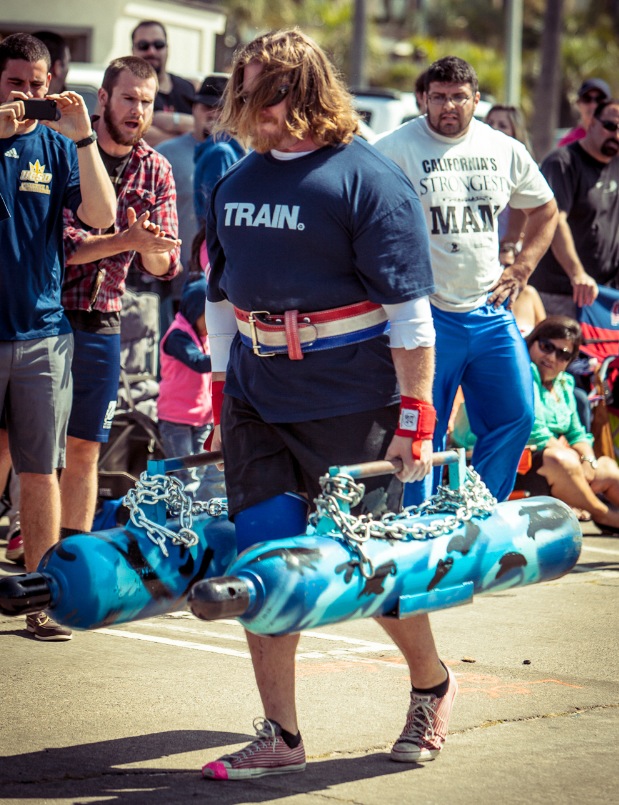
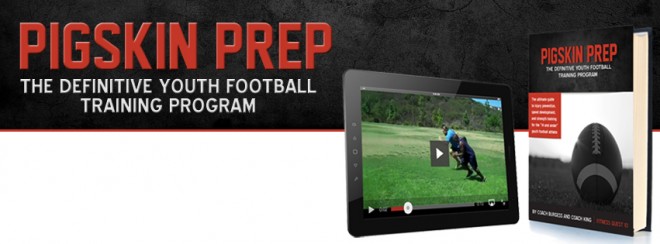
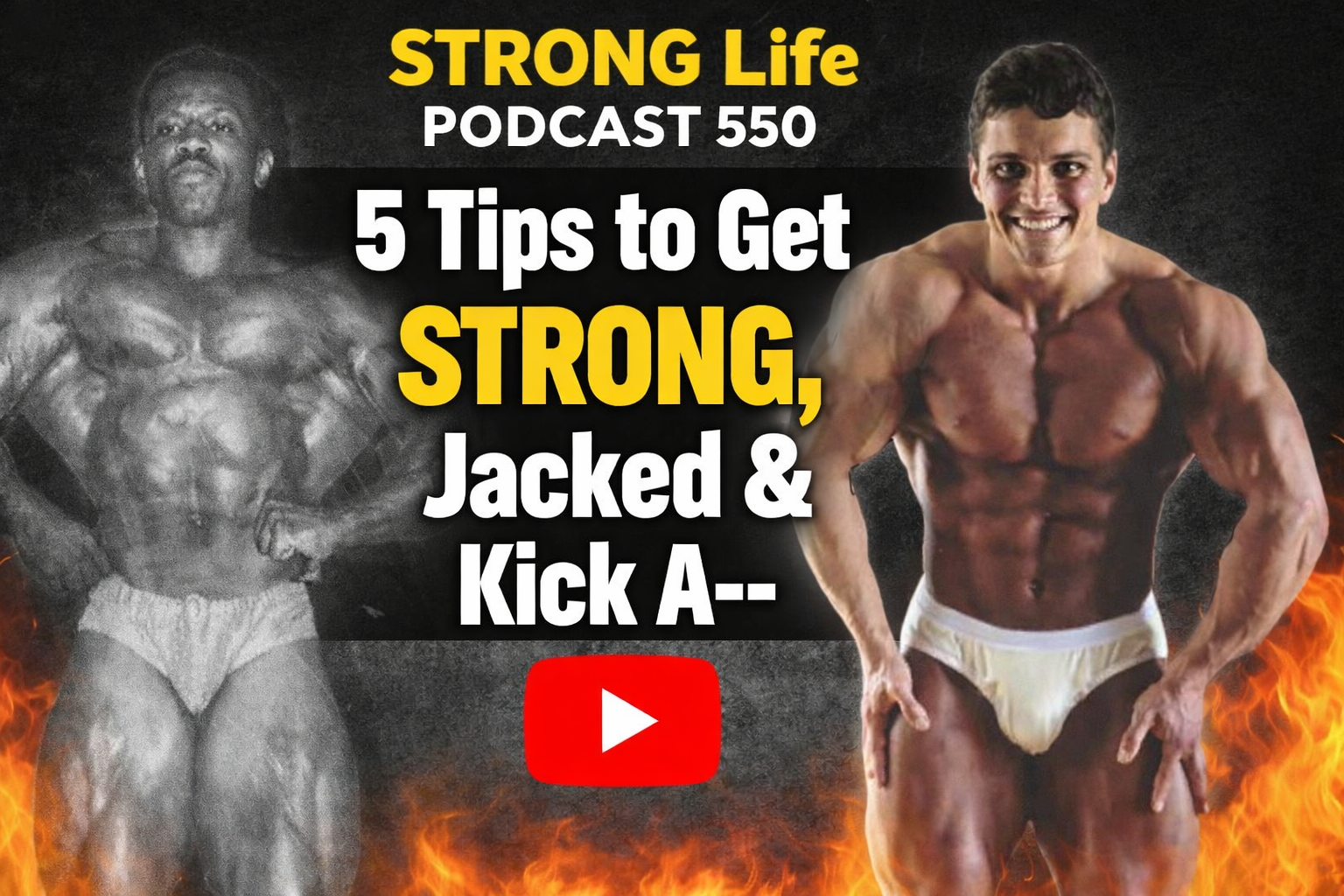
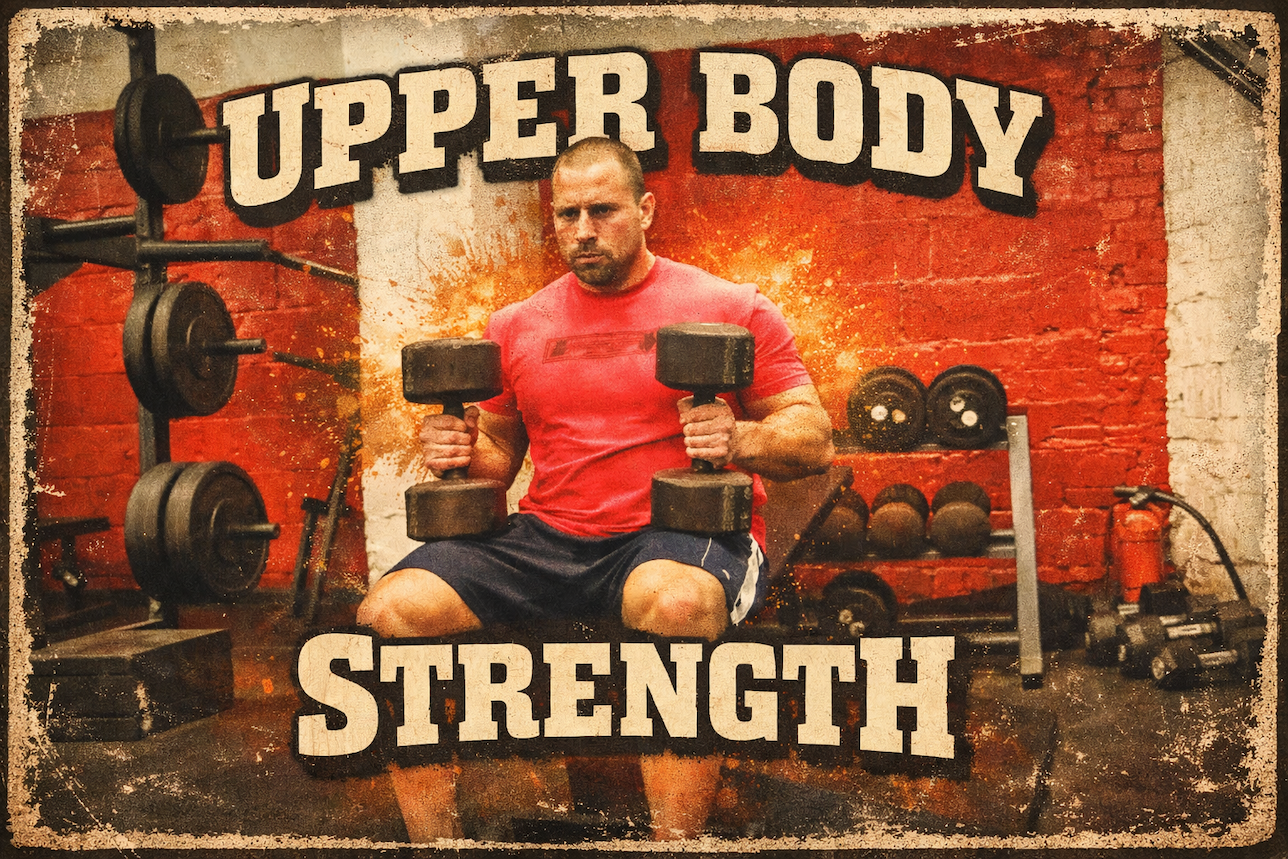
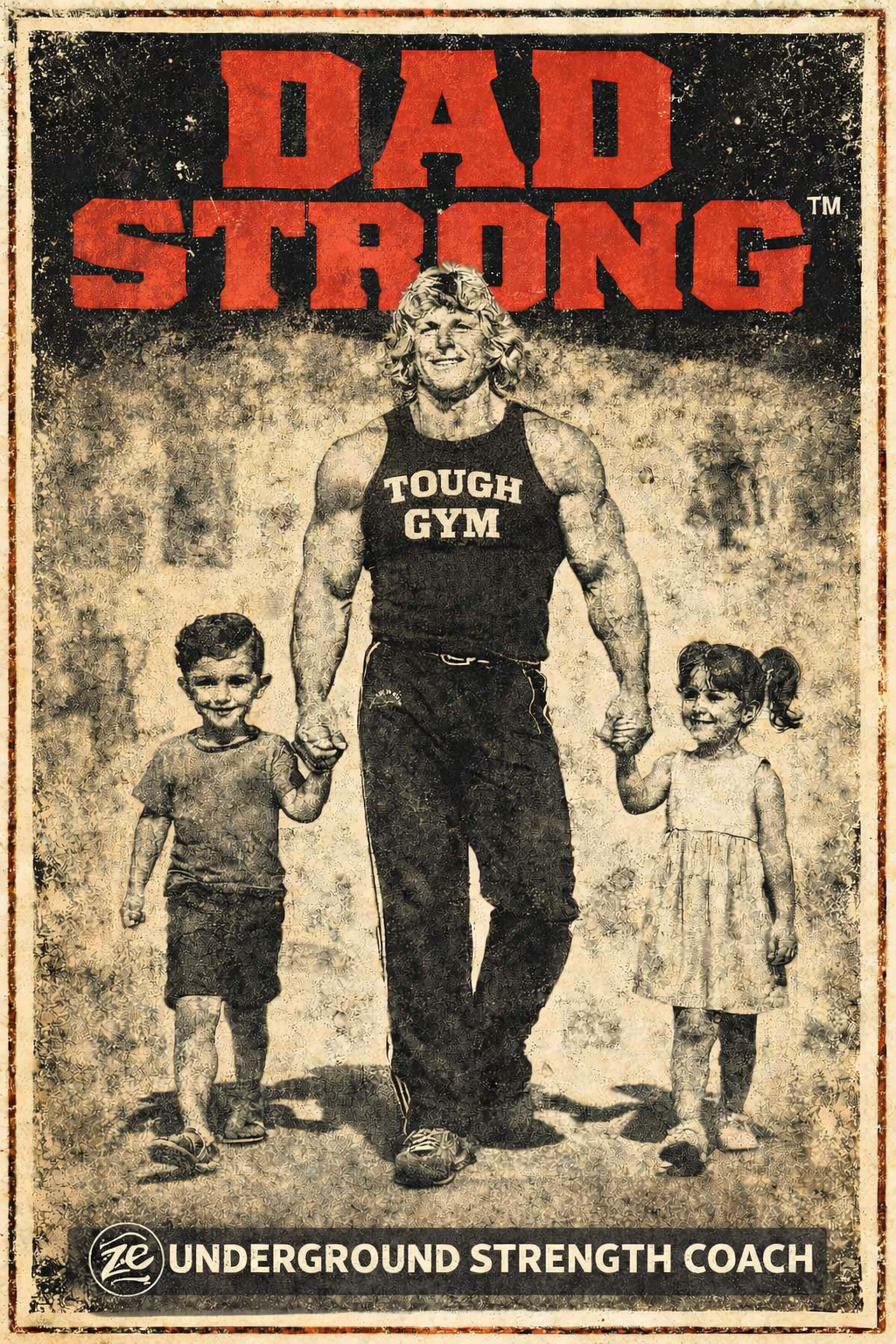
9 Responses
Zach,
Just a suggestion:
I would really enjoy reading a bit about sumo deadlifts vs. conventional (vs. trap bar). I have searched your blog archives but I cant find anything about it!
Also, I really enjoy the podcast!
Go to the inner circle and type in “deadlifting”. There are a few articles. If you are not a member-What are you waiting for?!
If you are just type it in and you will find a couple articles.
Underground-Weak you Enter! Beast you Leave!
If you enter “deadlifting” in the inner circle search you will find a couple articles about your question.
If you dont have the inner circle then you will need to sign up for it. The information is for the Driven.
Good stuff! Is this leading into maybe a podcast? If so I have some questions for the big dude.
Do you use strongman training with athletes to develop hip and back strength ie. Farmers, sled or tire.
Olympic lifts? How often or at all and do you use full lifts or only power. What about snatch balance with plyo.
Does he find himself more a strength guy or does he enjoy speed and footwork.
Reason I ask is I find myself more driven towards making the body strong, more explosive and able to tolerate high levels of stress. I also find that my time is limited with my athletes so I would rather focus on strength.
Personally I feel at practice for their sport is where they develop foot speed and timing. The gym is where turn a person into an athlete. If you lift right you will be faster and never have to run. I do like his talk about burn out so my push with parents is to use lifting sports as an alternative to year round club sports like baseball or basketball.
Great stuff as usual but if he could respond or toss him on a podcast that would be great.
Maybe a format for the future podcasts? Take questions?!
DW I know you’re not on FB but yes, I always ask peeps via FB and Twitter to send me questions and I’ll answer, or questions for our Coach on the STRONGCast
I’ll def get Ryan Burgess on a podcast!
Zach hope all is well brother! I hit the ground running out here in CO, so I’m just catching this comment thread now. Hopefully I didn’t miss my opportunity to do a Podcast, I’d love to collaborate at some point!
Talk soon man
Dustin- in the midst of moving to Colorado and setting up my own facility I missed out on getting back to you. Hopefully you’ll get these responses, even if it is unacceptably late!
1.) Strongman training for athletes: Farmers yes, Heavy pushes/pulls yes, but that’s probably about it from a general standpoint. Every athlete that a train I’m looking at 2 things: their GPP and also correspondence of training to their sport. If their GPP is low, then we focus on filling in those gaps. If their general foundation is pretty sound, then we can do some more specialized exercises, but only if they have a great degree of transfer to their sport.
2.) In regards to O lifts for athletes: generally I don’t use them. Our focus is on strength, power by means of throws and jumps, and speed by means of sprints. There are exceptions, but I don’t put a ton of emphasis on them.
3.) Strength vs. speed/footwork: my entire training model is built on the answer to three questions- what’s the primary sport, what’s the goals, and what is their current level of preparedness? As with you, I feel that strength does solve a lot of issues, so I do program with a strength bias. And I also agree with sporting practicing being the best place for an athlete to work on the speed and footwork needed for their sport. Some athletes however do have adequate “strength” but they’re lacking in something else for their sport. If I had a football player who could squat 500 but wasn’t in good enough condition to go more than 4 plays without getting winded, I can promise you bringing his squat up won’t be the highest priority.
4.) I like your point about lifting sports as an off-season alternative. As much as I love lifting and coaching lifters, for most young kids it doesn’t have to be lifting oriented; just breaking up the cycle will help. I think having 3-4 sports for a kid up until 13ish is a great plan, as long as the child seems to enjoy the activities for the most part. If parents are dragging their kids to something every single day for weeks on end, somethings wrong. Yes, we need to push our children, but we also need to give them the ability to think and decide for themselves occasionally. They’re smarter than we give them credit for!
Hopefully than answered some of your questions, and if you have anything further I’ll be sure to get back to you sooner.
I really liked the decision Ryan made to say screw it and just be yourself! That’s awesome. That in and of itself requires strength. Great post Zach. Thanks for sharing.
I appreciate the comment Brandon, glad you enjoyed the interview!